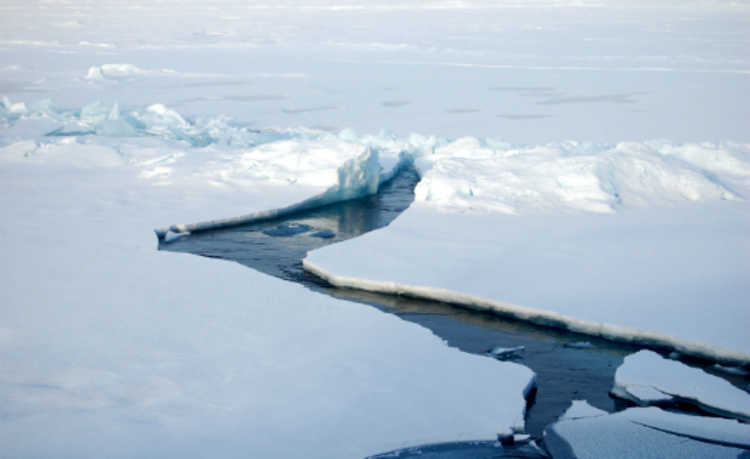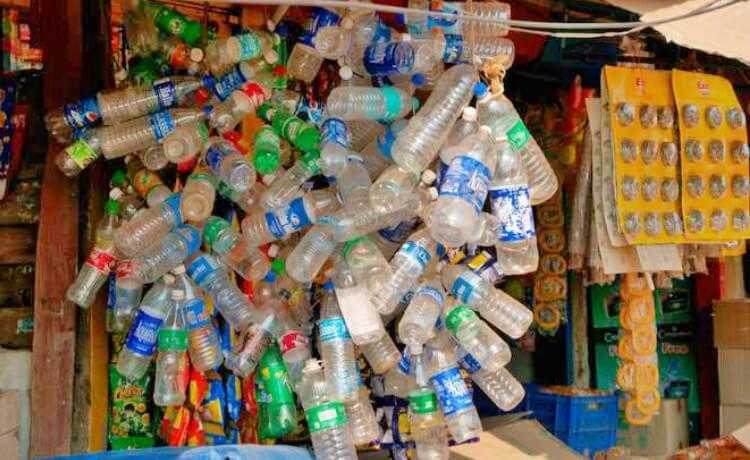Arctic new target for oil companies
Despite environmental problems, the struggle to get more and more oil continues

The melting of the polar ice caps is a consequence of global warming and a realization of the negative effects of human action on the planet. This environmental problem, like many others, is directly associated with the use of fossil fuels. Even so, the search for oil continues to take place ostensibly. The world economy is still dependent on this mineral resource and this motivates research to expand exploration, against research seeking alternative sources of energy. The oil companies' next target is the Arctic, where the seabed contains an immense amount of oil and gas.
Greed for money, power and influence distorts environmental problems in favor of economic benefits. The melting of Arctic ice has facilitated access to the region and opened up new sea routes, making it financially viable to invest in the exploration of an estimated 83 billion barrels of oil in such severe weather conditions. The Arctic melt has sparked a dispute between Russia, Canada, Norway and the United States for the right to profit, regardless of the risks associated with environmental disasters.
The Arctic ecosystem is very sensitive to any type of pollutant and an oil spill would cause serious damage. The polar ice cap is fundamental for the Earth's balance and, furthermore, the living beings in this region do not inhabit any other place on the planet. Even so, there is interest in oil extraction in the Arctic.
There are a few techniques to contain an oil spill, but none that are completely effective, especially in such extreme conditions. In the Arctic, where the temperature reaches -50°C and which for some months of the year remains in total darkness, the methods adopted today are not 100% efficient. In other words, in this sense, it will be necessary to develop specific technologies adapted to the region's hostile climate. The 2010 Gulf of Mexico disaster was proof of the difficulties in containing a large-scale leak and revealed the need for investment in new technologies to solve potential problems arising from the extraction.
Even with these natural obstacles, Shell, an American oil exploration company, is about to start exploring this mineral resource in the Arctic. This will trigger a rush for oil, just as it does in Africa and the Middle East. If this is confirmed, there will soon be more political, economic and especially environmental misunderstandings motivated by black gold.
To try to put pressure on international authorities, Greenpeace, through the savetheartic project, seeks to collect three million signatures online to transform the Arctic into an ecological sanctuary. If you would like to subscribe or obtain further information on the subject, visit the website //www.salveoartico.org.br/pt.
Brazil and the pre-salt
Brazil has an energy matrix that is a reference for the whole world, but it is following steps similar to those of countries in the northern hemisphere. After the discovery of the pre-salt, many resources were allocated to the development of technologies for drilling wells at great depths. Plans are even made with the money that didn't even come true, as many bet their chips on the Pre-Salt, believing that all the country's problems will be miraculously resolved.
Even with the investment in biodiesel, ethanol and other clean energy sources, oil is still a highly valued resource. The discovery of such a large amount of oil, in Brazilian waters, has mobilized the Union and the Brazilian states to decide who should make a profit and the best way to carry out this exploration.
The presence of oil in a territory tends to make other economic initiatives difficult, causing a dependence on dollars coming from exploration. Many OPEC member countries, for example, have a fragile economy, based almost exclusively on oil, making it difficult for other sectors to develop.
The oil existing in the marine subsoil, both in the pre-salt and in the Arctic, requires high investments and efforts to develop new techniques and machinery for the extraction of something so polluting and environmentally harmful to the planet. Such commitment makes it increasingly difficult to believe in the existence of an economy with less impact on the planet.










